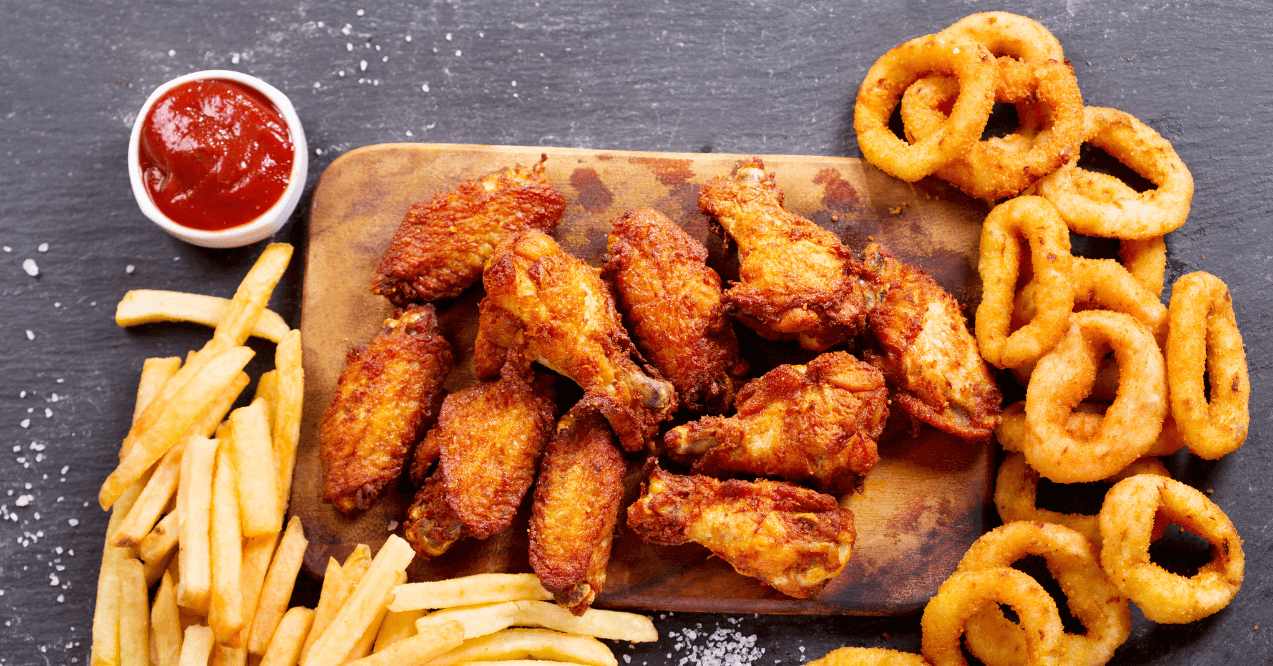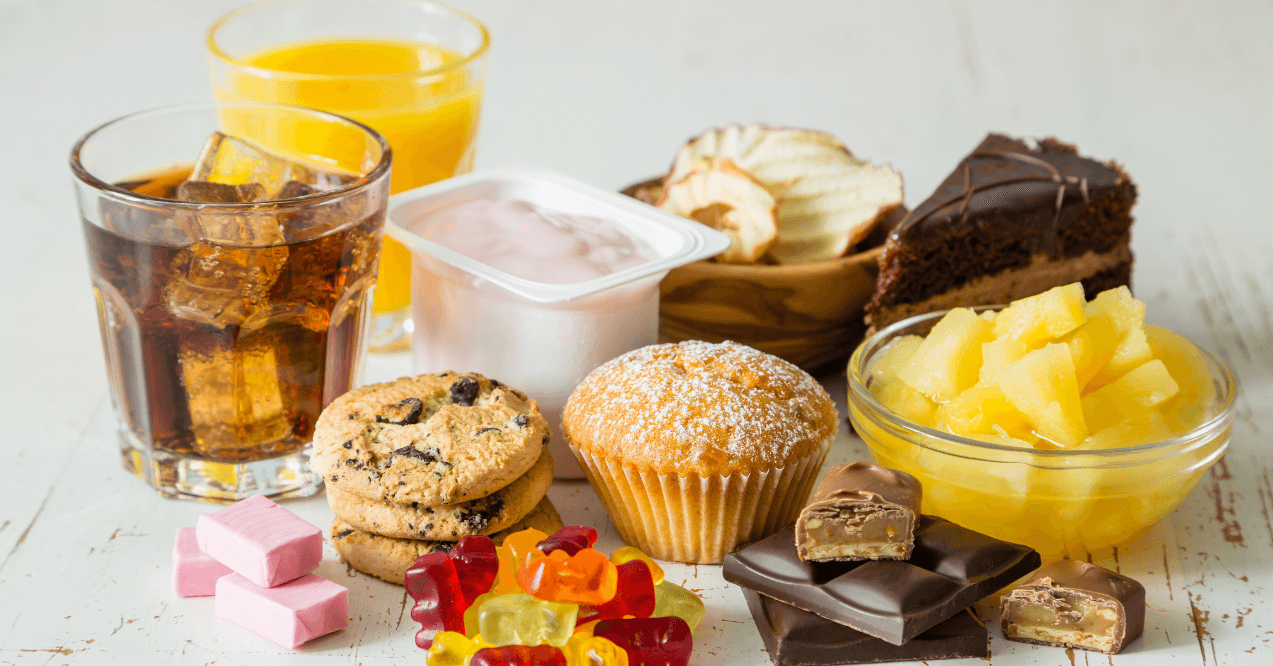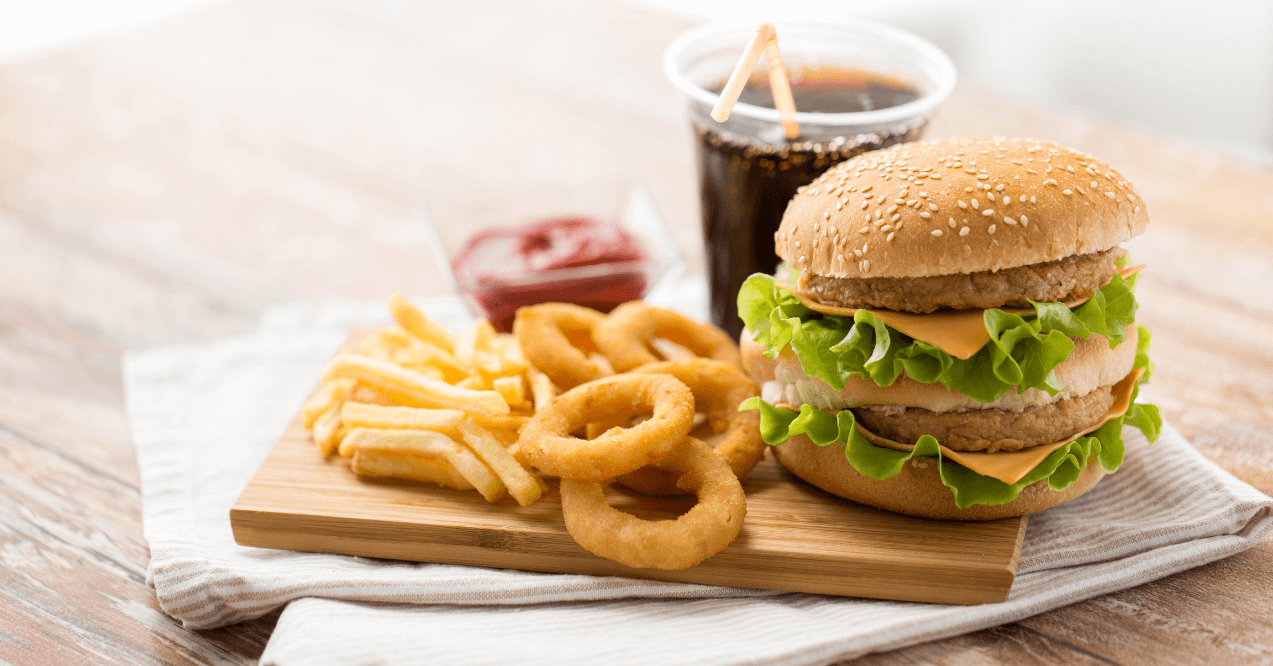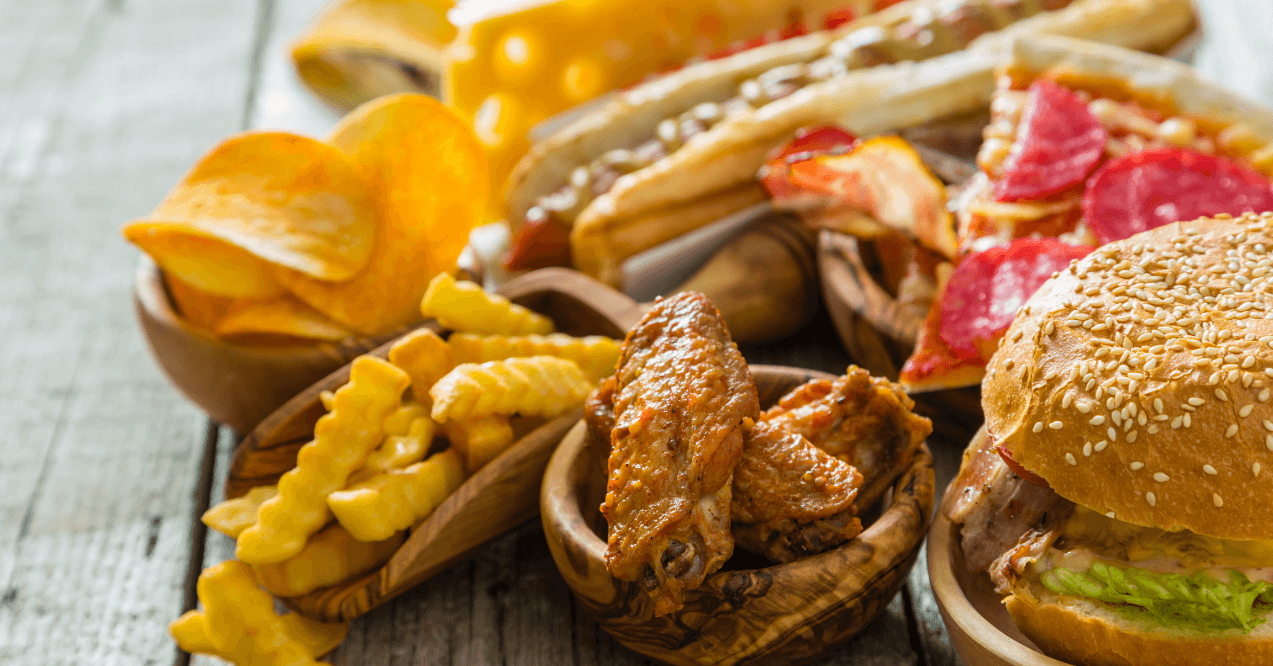What Are the 5 Worst Foods for Memory? You Might Be Eating Them
Medically reviewed by our experts


The foods we choose every day directly shape how our brain functions, especially in areas like focus, recall, and mental clarity. While some ingredients support long-term brain health, others may trigger inflammation and interfere with memory. Over time, diets high in processed foods, sugar, or unhealthy fats can increase the risk of cognitive decline and persistent brain fog.
So, what are the 5 worst foods for memory? Research suggests that certain dietary choices may negatively impact the brain by causing inflammatory processes and disrupting neurotransmitter activity.
How Diet Affects Memory & Brain Health
Daily nutrition choices directly affect how well our brain works. Foods bad for brain function can make it harder to focus during morning activities, recall names at social gatherings, or maintain attention while reading. These effects become more noticeable after age 60, when our brain needs more specific nutrients to stay sharp.
Our brain cells need specific nutrients to work properly:
- Omega-3 fats from fish help brain cells send signals to each other
- Zinc and iron supporting mental clarity
- B-vitamins help create neurotransmitters that affect mood and memory
- Healthy fats maintain the coating around brain cell connections
When we make beneficial food choices, we support our brain’s natural capacity to maintain strong neural connections. For example, incorporating a 7-day liver cleanse diet can also help promote brain health by supporting detoxification pathways, which is crucial for maintaining cognitive function.
Moreover, since the lymphatic system plays a key role in clearing waste from the brain, avoiding the worst foods for your lymphatic system may also support better memory and cognitive function over time.
What Are the 5 Truly Worst Foods for Memory?
When considering what are the 5 worst foods for memory, a list consistently emerges of items linked to reduced brain function: fried foods, sugary items, refined carbohydrates, excessive alcohol, and foods containing artificial trans fats. Many people consume these daily, often without realizing their potential effects on mental clarity and memory.
1. Fried Foods

Fried meals contain compounds that interfere with brain communication. Items like French fries or fried chicken carry unhealthy fats and excess sodium, both of which can slowly damage brain tissue when consumed regularly.
Common fried choices include:
- Onion rings
- French fries
- Fried chicken
2. High-Sugar Foods & Drinks

It is important to understand what drinks help with memory loss, because drinks like sodas, energy beverages, and sweet teas deliver sudden sugar spikes that disrupt brain cell activity. Consuming these daily can impair concentration, making it harder to process and store new information.
Some of the biggest culprits are:
- Sweetened iced teas
- Soft drinks and sodas
- Energy drinks
3. Processed & Refined Carbohydrates

White bread, pasta, and pastries quickly convert to sugar in the body. This creates sudden energy highs followed by crashes, leaving the brain struggling to maintain steady focus and memory performance.
Examples that fit this group include:
- Pastries and cakes
- White bread
- White pasta
4. Alcohol

Frequent drinking can interrupt brain repair processes and memory formation. More than 1–2 daily drinks may lead to focus problems, fatigue, or brain fog, especially when combined with dehydration.
Drinks most often linked with these effects include:
- Spirits and cocktails
- Beer
- Wine
Additionally, alcohol’s dehydrating effects may contribute to feelings of mental fatigue or confusion, leading some to wonder: can dehydration cause brain fog? Staying properly hydrated is essential for supporting mental clarity and overall cognitive performance.
5. Artificial Trans Fats & Margarine

Artificial trans fats are a key part of the answer to what are the 5 worst foods for memory? These fats are consistently linked to reduced brain function and are found in many everyday items—often in places you might not expect:
- Packaged cookies and cakes
- Stick margarine
- Frozen processed foods
Many food manufacturers have reduced or eliminated trans fats in their products. However, these fats still exist in the food supply, particularly in processed and packaged foods with long shelf lives. When grocery shopping, take time to compare products and choose options with cleaner ingredient lists.
Foods That May Help Boost Memory

After identifying what foods kill brain cells, it’s also important to focus on beneficial alternatives. Certain foods contain nutrients that support brain function and can help maintain mental clarity. These foods work best when incorporated regularly into daily meals and snacks.
Fruits & Vegetables
Colorful fruits and vegetables contain compounds called flavonoids and antioxidants that support normal circulation to the brain. These nutrients appear most concentrated in:
- Dark berries (blueberries, blackberries)
- Leafy greens (spinach, kale)
- Bright vegetables (sweet peppers, carrots)
- Citrus fruits (oranges, grapefruits)
Adding one serving of berries and two servings of leafy greens to your daily meals provides these beneficial compounds.
Some people also experiment with recipes like mind salad, which combine leafy greens, nuts, and omega-rich ingredients to further support memory and brain health.
Fatty Fish (Omega-3s)
Cold-water fish provide DHA, a type of fat that makes up 25% of your brain’s fat content. Good options include:
- Salmon
- Sardines
- Trout
- Mackerel
Including fish 2-3 times weekly provides these essential fats that your body cannot produce on its own.
Whole Grains & Healthy Carbs
Whole grains contain B-vitamins and fiber that regulate glucose release into the bloodstream, unlike refined carbohydrates. Good choices include:
- Oats
- Quinoa
- Brown rice
- Whole grain bread
- Barley
This steady energy supply helps maintain consistent mental clarity throughout the day.
Healthy Fats (Nuts, Olive Oil, Avocados)
These foods provide nutrients that support the protective coating around brain cells:
- Walnuts and almonds
- Extra virgin olive oil
- Fresh avocados
- Chia and flax seeds
Adding a small handful of nuts or seeds daily, along with 1-2 tablespoons of olive oil, helps incorporate these beneficial fats into your diet.
While a balanced diet forms the foundation of cognitive wellness, many adults choose to add supplementary nutrition. CogniCharge by Nature’s Blast offers a convenient powder-based formula containing vital nutrients like B-vitamins, Bacopa, and Phosphatidylserine. This carefully crafted blend includes L-Theanine, GABA, and other natural compounds that work together to support mental clarity. The powder format allows for easy incorporation into your daily routine, whether mixed with water or added to your morning beverage.

Lifestyle Tips to Protect Memory & Brain Health
The foods we eat work together with our daily habits to influence brain function. Simple lifestyle adjustments, combined with mindful eating, might also create positive effects on mental clarity and cognitive abilities.
Exercise & Physical Activity
Regular movement supports brain health in several ways. Even light physical activity like walking or gardening increases circulation throughout the body, including the brain. Aim for activities you enjoy:
- Daily walks in your neighborhood
- Light swimming or water exercises
- Gentle stretching routines
- Working in the garden
- Simple chair exercises
- Dancing to favorite music
Try to include 30 minutes of movement most days of the week, breaking it into smaller 10-minute sessions if needed.
Mental Stimulation & Learning
Engaging in mentally stimulating activities helps maintain cognitive function. Mix up your routine with various activities:
- Solo activities – crosswords, puzzles, learning musical instruments
- Social learning – card games, community classes, group discussions
- Creative pursuits – new recipes, crafts, artistic hobbies
Aim to include at least one of these activities daily – they work best when combined with social interaction and gradual increases in difficulty.
Sleep & Stress Management
Quality rest and balanced stress levels play key roles in maintaining brain function. Focus on creating routines that support good sleep:
- Evening preparation – limit screens, gentle stretches, soft music
- Sleep environment – quiet room, comfortable bedding, cool temperature
- Time consistency – fixed bedtime, regular wake-up schedule
Most adults benefit from 7-8 hours of quality sleep each night in a cool, dark room.
For stress management, start with physical practices such as deep breathing, walking in nature, or gentle movement. Social connections also play a vital role – spending time with friends, joining group activities, and sharing experiences with others. Throughout your day, create moments of balance by taking regular breaks, finding quiet moments, and engaging in mindful activities.
Including 2-3 of these stress management practices in your daily routine helps create a more balanced and supportive environment for brain health.
Conclusion
So, what are the 5 worst foods for memory? Fried items, sugary foods and drinks, refined carbohydrates, excessive alcohol, and artificial trans fats. Awareness of these foods allows us to make informed choices about our daily nutrition.
The path to better cognitive health involves both reducing problematic foods and adding beneficial ones. Fruits, vegetables, fatty fish, and whole grains provide nutrients that support brain function. These dietary choices work best when paired with regular physical activity, quality sleep, and mentally engaging activities.
Fried foods often contain harmful compounds and unhealthy fats that accumulate in the body. Over time, these can disrupt brain cell communication and contribute to inflammation, making it harder to focus and retain information.
Excessive alcohol disrupts brain cell communication. Ultra-processed foods with artificial additives affect cellular health. Foods with high mercury content like certain fish species impact neural function. High-sugar items create cellular stress.
Refined carbohydrates might cause rapid sugar level changes affecting mental clarity. Processed foods high in sodium potentially affect circulation. Foods with artificial preservatives might impact focus and concentration.
Green tea, coffee in moderation, and water support brain function. Berry smoothies with leafy greens provide beneficial compounds. Vegetable juices with beets and dark leafy greens maintain healthy blood flow to the brain.
FAQ
References

